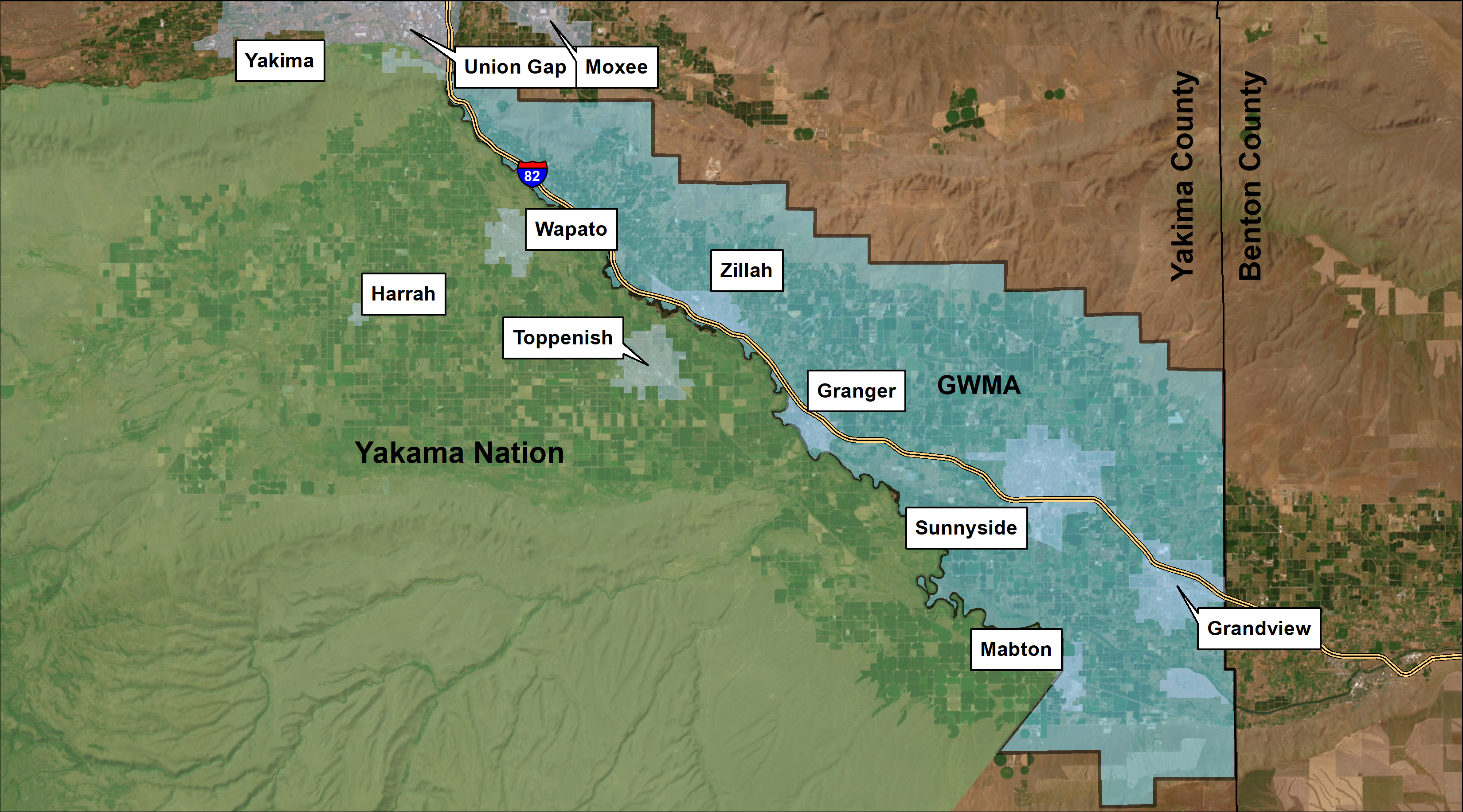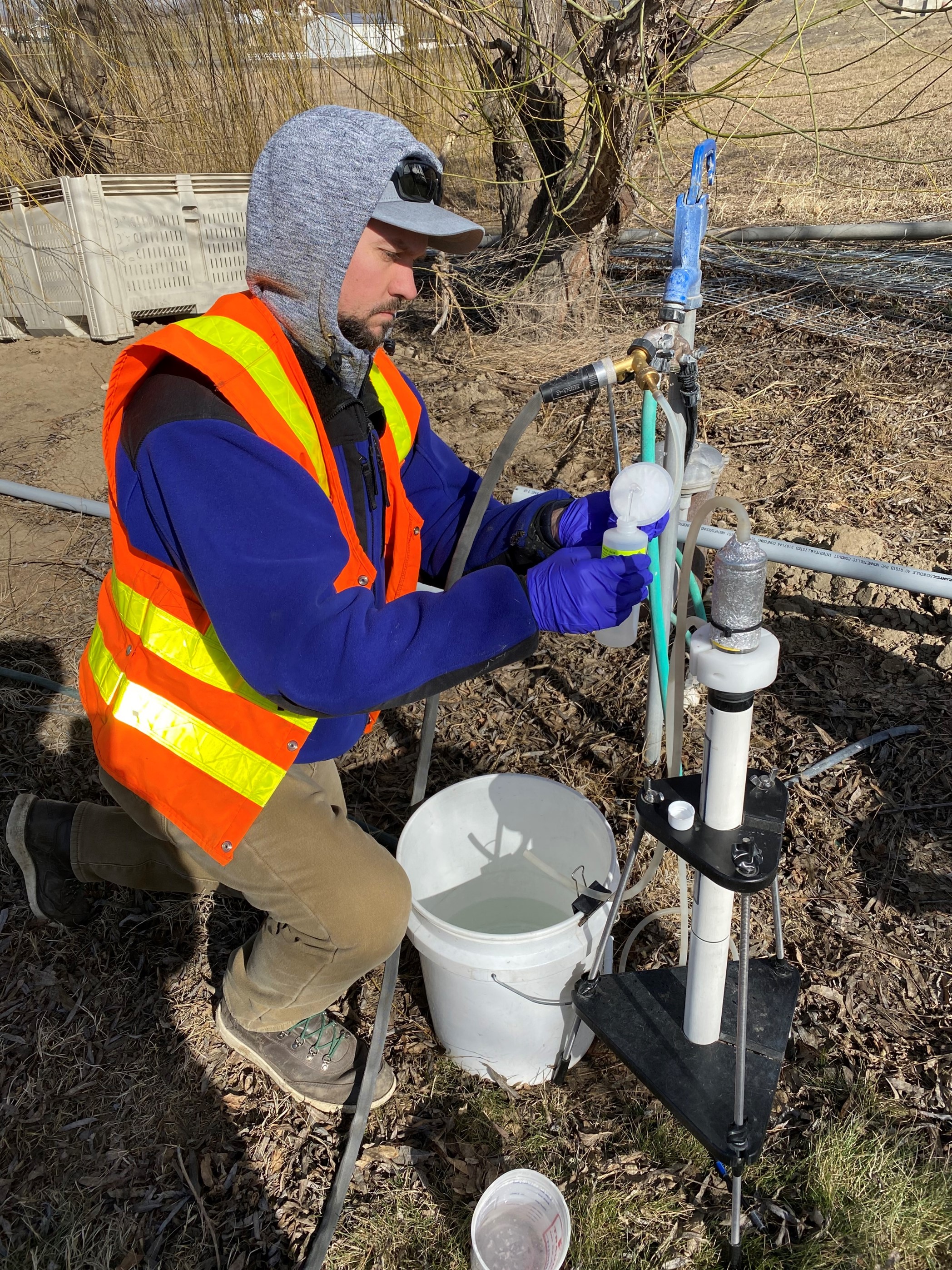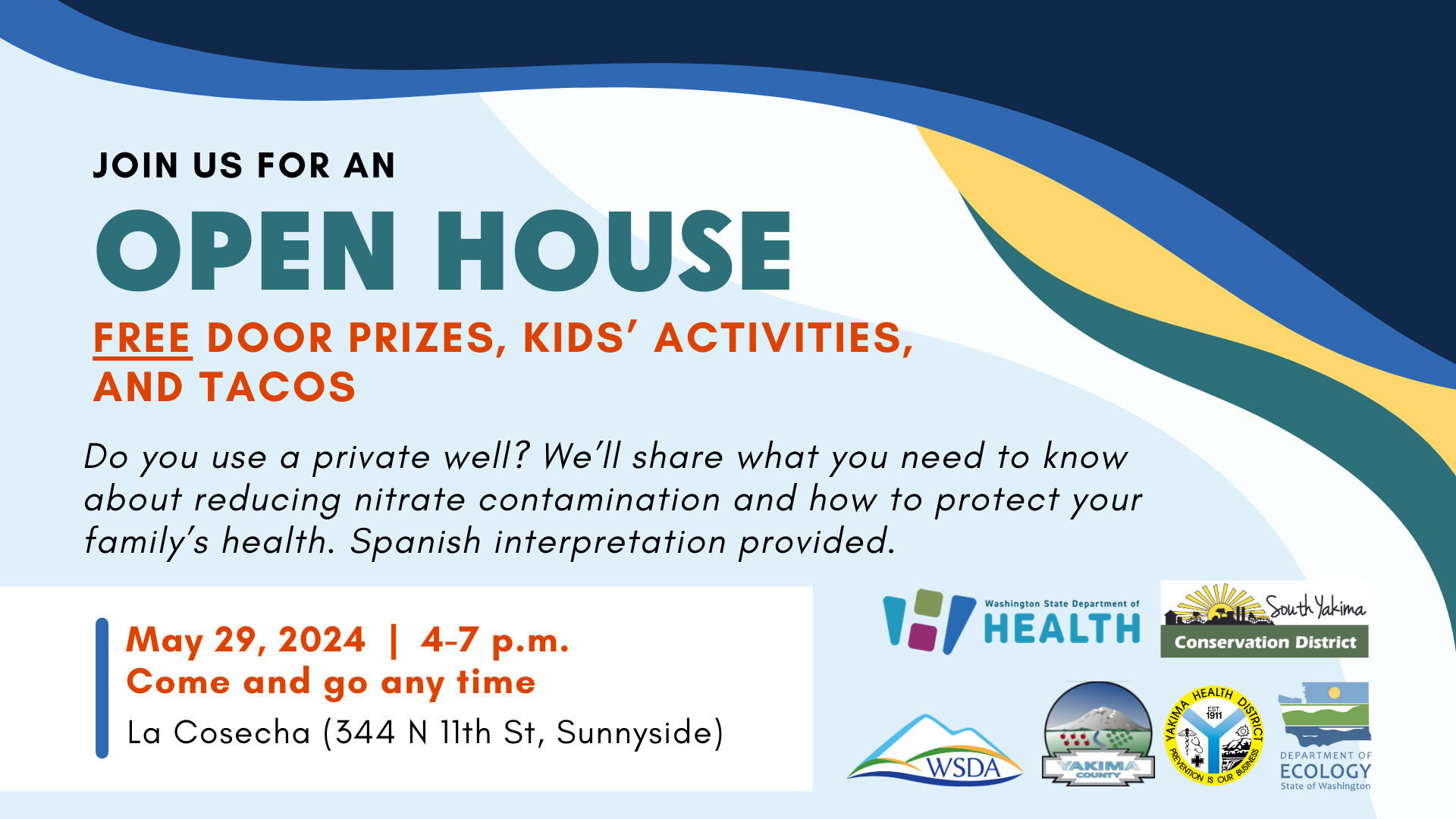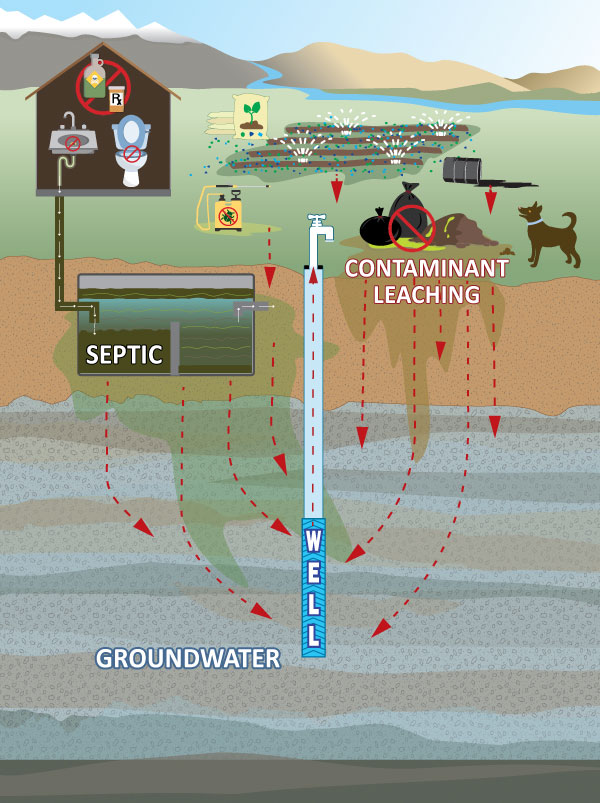Clean water for living, working, & playing
When you turn on your faucet, the water that comes out should be safe to drink and cook with. Unfortunately, this isn't true for some private well users in the Lower Yakima Valley.
Groundwater in this area contains elevated levels of nitrate. While nitrates do not cause health issues for most adults, some people may be at greater risk due to certain health conditions.
That's why we — a group of local and state agencies — are focusing on reducing nitrate contamination so everyone in the Lower Yakima Valley has clean, safe drinking water.
We will provide regular updates on this project and share what you need to know if your well is impacted.
Subscribe to receive future updates on this project in your inbox.
Some well owners in the blue highlighted area — the Lower Yakima Valley Groundwater Management Area (GWMA) — may not have safe levels of nitrate in their water and are eligible for free well testing.
Are you eligible? Free well testing & drinking water
Reducing nitrate contamination throughout the Lower Yakima Valley is a long-term process. While we continue working on that, people still need immediate access to clean, safe drinking water. Yakima County staff help a local resident sign up to receive free bottled water.
If your water comes from a private well and you live within the project boundaries, you can have your well tested for free.
If test results show your well water has high nitrate levels, you're eligible to receive clean drinking water at no cost to you.
You may also qualify for a specialized water treatment system, called a reverse osmosis filter, that can be installed under your kitchen sink.
We'll help you maintain your unit for free up to five years after it's installed.
There are a limited number of these filters available, so get in touch right away to find out if you qualify for installation.
Call 1-866-886-7117 to schedule a home visit and have your well sampled.
You can also call to find out if you are eligible to receive free bottled water and/or a free water treatment system.
Department of Ecology staff collecting samples from a drinking water well.
If you are served by a public water system, you don't need to do anything. Those systems monitor for nitrate on a regular basis to make sure your water is safe to drink.
If you would like your well tested but don't live within the project boundaries, you can bring samples of your water to one of the four certified water labs in Yakima County.
Tracking nitrate levels
Since 2021, we have been monitoring nitrate levels in 170 wells throughout the Lower Yakima Valley. We're continuing to sample these wells every year.
This data tells us how nitrate levels change across seasons and within individual wells in different parts of the valley. By comparing new data to older sampling results, we can see if our efforts to reduce nitrate contamination are working.
Stay involved: project updates, food, & prizes May 29
Date: Wednesday, May 29, 2024
Time: 4-7 p.m. (come and go any time)
Where: La Cosecha (344 N 11th St, Sunnyside)
Learn more
What is nitrate?
Nitrate is a chemical that can come from fertilizers, manure, agricultural runoff, dairy lagoons, and human waste from septic tanks. Nitrate also naturally exists in the environment and can be found at safe levels in vegetables.
Nitrate is the most common groundwater contaminant. Rain or irrigation can easily carry it down through soil and into groundwater. Your drinking water may contain nitrate if your well draws from this groundwater.
Learn more about possible health risks from nitrate-contaminated well water.
What is groundwater?
Groundwater is water below the surface of land. It flows through the tiny spaces between soil, sand, and rocks. Septic tanks, pet and household waste, and fertilizers can all leach nitrates into groundwater — and your well — if not carefully managed.
If your water comes from a well, you are part of the 65% of Washingtonians whose drinking water comes from groundwater.
That's why it's important to be mindful of activities above ground and how they can contaminate your water.
What can I do?
If your water comes from a private or shared well, you are responsible for maintaining and sampling your well. Knowing what's in your water helps you decide what to do to protect your health. If you use well water and live within the project boundaries, please call 1-866-886-7117 to have your well tested for free. You may qualify to receive free bottled water and/or a water filter.
For questions about information in this newsletter, please contact:
Sheryl Howe
Project coordinator
Lower Yakima Valley Groundwater Management Area
Sheryl.Howe@doh.wa.gov
The Groundwater Management Area project is partnership of local and state agencies working to reduce nitrate contamination and ensure communities have clean drinking water in the Lower Yakima Valley.
 (2).png)


 (1).png)




